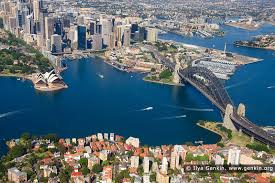The Australian passport is now among the top five most powerful, according to the latest rankings, which also show a Southeast Asian nation has retained its top spot. Here’s how our little blue book fared.
The Australian passport is among the top five most powerful in the world, according to new rankings, with the number of destinations those who hold it can access visa-free having grown.
Australia placed joint fifth alongside Portugal in the 2024 Henley Passport Index, up from joint eighth spot last year.
The Australian passport is now ranked higher than that of the United States, which fell from joint seventh position to eighth — a continued decline it has experienced since jointly topping the list with the United Kingdom a decade ago.
The Henley Passport Index — created by Henley & Partners, a London-based investment migration consultancy firm — uses data from the International Air Transport Authority to compare the visa-free access of 199 nations’ passports to 227 destinations.
The most powerful passport — and how Australia compares

Tied for fifth place, Australian and Portuguese passport holders can access 189 destinations without a visa — or with a visa, visitor’s permit or electronic travel authority (ETA) they can obtain upon arrival.
However, that’s six fewer countries that holders of the most powerful passport, Singapore, can access visa-free.
Singaporeans can access 195 destinations without prior visa authorisation — a figure which has seen them reclaim the top spot it last held jointly with Japan in 2022.
Japan ranked first in 2023, but this year placed equal second alongside France, Germany, and Italy. Holders of these passports can access 192 destinations visa-free.
A passport rule is threatening 500 Timorese workers in Australia. Some fear ‘losing everything’
Austria, Finland, Ireland, Luxembourg, the Netherlands, South Korea, and Sweden were all in third spot with visa-free access to 191 countries.
Meanwhile, New Zealand, Denmark, Belgium, Norway, Switzerland and the United Kingdom were able to access 190 destinations without a visa — a score that saw them rank equal fourth.
Which passports are the weakest?
In 103rd place was the Afghan passport, which again ranked at the bottom of the list with visa-free access to just 26 destinations — the lowest score ever recorded in the index’s 19-year history.
Syria placed 102nd with a visa-free score of 28, while Iraq was ranked 101st with a score of 31.
Rounding out the five weakest passports were Yemen and Pakistan, both ranked 100th with access to 33 destinations visa-free; Somalia in 99th place with visa-free access to 35 destinations; and Nepal and Libya in 98th position with a visa-free score of 39.
“The general trend over the past two decades has been towards greater travel freedom, with the global average number of destinations travellers are able to access visa-free nearly doubling from 58 in 2006 to 111 in 2024,” said Henley & Partners chairman Christian Kaelin in a statement.
“However, the global mobility gap between those at the top and bottom of the index is now wider than it has ever been, with top-ranked Singapore able to access a record-breaking 169 more destinations visa-free than Afghanistan”.
Which countries can Australians visit without a visa?
Some of the geographically closest countries Australians can travel to without prior visa authorisation include Singapore, Thailand, the Philippines, Malaysia, China, New Zealand, Samoa and Fiji.
In Europe, Australians can travel visa-free to countries such as the Czech Republic, Denmark, France, Greece, Italy, Malta, Portugal, Switzerland and the United Kingdom.
In Africa, the list includes countries such as Botswana, The Gambia, Mauritius, South Africa and Tunisia. In the Americas, Australians can visit places such as Barbados, Brazil, Canada, the Dominican Republic, Jamaica and the United States.
The fee for travellers leaving Australia is now one of the highest in the world
How ‘open’ is Australia?
Separately, Henley’s Openness Index examines how ‘open’ countries are. That is, how many countries they grant visa-free access to versus their own citizens’ travel freedom.
Ranked 83rd out of 99, Australia is one of the least open nations. Citizens of just 34 countries can visit Australia without prior visa authorisation, while Australians can travel to 183 destinations visa-free.
The most ‘open’ countries, which all ranked equal first are Burundi, Cape Verde Islands, Comoros, Djibouti, Guinea-Bissau, Kenya, Maldives, Micronesia, Mozambique, Rwanda, Samoa, Timor-Leste and Tuvalu.
Citizens from 198 nations can travel to these countries without a visa.


